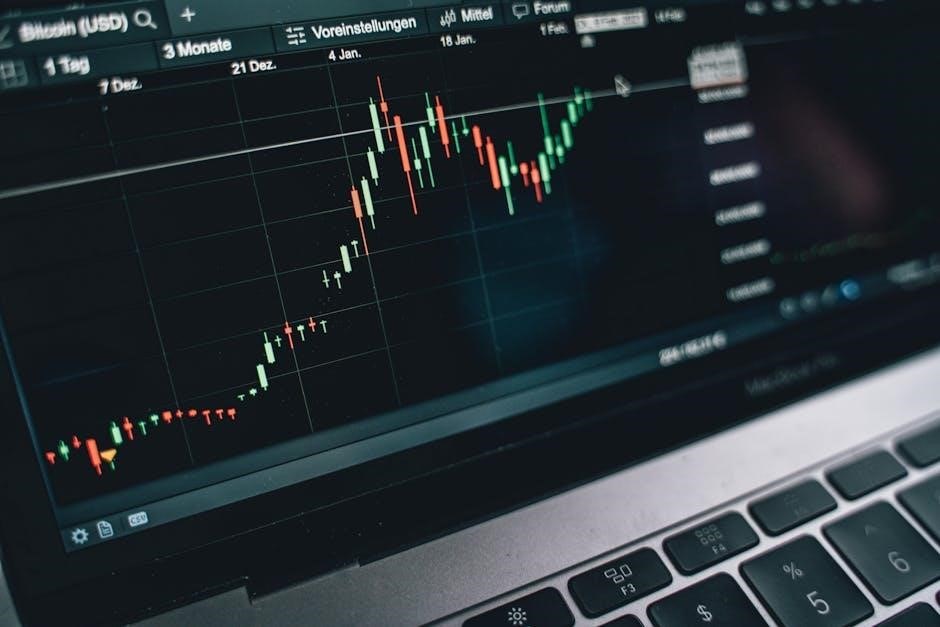Futures market provides a platform for buying and selling contracts, with
various
assets and investment options available to traders and investors worldwide online daily.
Definition and Purpose of Futures Contracts
A futures contract is an agreement to buy or sell an underlying asset at a predetermined price on a specific date in the future, with the obligation to fulfill the contract.
The primary purpose of futures contracts is to provide a means of managing price risk, allowing participants to hedge against potential losses or gains due to price fluctuations.
Futures contracts are standardized, exchange-traded, and regulated, ensuring a level of transparency and security for traders.
The definition of a futures contract is closely tied to its purpose, which is to facilitate price discovery and risk management in various markets.
Futures contracts are used by a wide range of participants, including investors, traders, and commercial entities, to achieve their financial goals and objectives.
The purpose of futures contracts is to provide a flexible and efficient way to manage risk and speculate on price movements, making them an essential tool in modern finance.
Overall, the definition and purpose of futures contracts are fundamental to understanding the workings of the futures market and its role in the global economy.

Common Asset Categories in the Futures Market
Futures contracts are available for various assets, including commodities, currencies, and indices, offering diverse investment options to traders and investors in the market daily online.
Commodity Futures and Other Underlying Assets
Commodity futures are a type of futures contract that allow investors to buy or sell commodities at a set price on a specific date. These contracts are often used by companies that produce or consume commodities, such as oil, corn, or metals, to manage their risk and lock in prices. Other underlying assets, such as currencies, indices, and stocks, are also available for trading in the futures market. The diversity of underlying assets provides investors with a range of options to suit their investment goals and risk tolerance. Investors can use futures contracts to speculate on price movements, hedge against potential losses, or diversify their portfolios. With the ability to trade a variety of assets, the futures market offers a unique opportunity for investors to manage their risk and potentially profit from price movements. The futures market is a complex and dynamic system, and understanding the different types of underlying assets is essential for making informed investment decisions.

Getting Started with Futures Trading
Traders and investors can start with online tutorials and guides, understanding market trends and analysis daily, using various online platforms and tools, with step-by-step instructions and expert advice available.
Choosing a Reputable Broker and Investment Options
To get started with futures trading, it is essential to choose a reputable broker who offers the best pricing and investment options. This can be done by researching online and reading reviews from other traders and investors. A good broker should have a user-friendly platform, low fees, and excellent customer support. Additionally, they should offer a variety of investment options, including different types of futures contracts and trading tools. It is also important to consider the broker’s regulatory status and ensure that they are registered with the relevant authorities. By choosing a reputable broker, traders and investors can ensure that their investments are safe and that they have access to the best trading tools and resources. Furthermore, a good broker can provide valuable guidance and support, helping traders and investors to make informed decisions and achieve their investment goals. Overall, choosing the right broker is crucial for success in the futures market.

The Role of Producers and Traders in the Futures Market
Producers and traders play crucial roles in the futures market, using contracts to manage risk and prices, with producers hedging against price fluctuations and traders speculating on market movements online daily.
Price Certainty and Risk Management for Producers
Producers use futures contracts to achieve price certainty and manage risk, allowing them to lock in prices for raw materials and commodities, thereby protecting themselves from market volatility and potential losses.
This is particularly important for companies that rely on stable input costs to maintain profitability, as fluctuations in commodity prices can have a significant impact on their bottom line.
By using futures contracts, producers can ensure a fixed price for their raw materials, enabling them to better manage their budgets and make informed investment decisions.
The use of futures contracts also provides producers with a level of protection against unexpected price spikes, which can be devastating to their business operations.
Overall, the ability to manage risk and achieve price certainty through futures contracts is a vital tool for producers, enabling them to operate with greater confidence and stability in an uncertain market environment, and to plan for the future with greater accuracy.
This approach helps to reduce the risks associated with price volatility, and to increase the overall efficiency of their operations, which can lead to cost savings and improved profitability.

Regulation of the Futures Market
The U.S. Commodity Futures Trading Commission regulates futures markets, protecting users from fraud and manipulation, with rules and guidelines to ensure fair trading practices and market integrity online daily always;
The U.S. Commodity Futures Trading Commission and Market Oversight
The U.S. Commodity Futures Trading Commission (CFTC) is an independent government agency responsible for regulating the futures market. The CFTC was formed in 1974 to oversee and regulate the futures and options markets. Its primary mission is to protect market users and the public from fraud, manipulation, and abusive practices. The CFTC achieves this through a combination of oversight, enforcement, and education. It monitors trading activities, investigates suspicious behavior, and takes enforcement action when necessary. The CFTC also works to ensure that futures exchanges and other market participants operate fairly and transparently. By regulating the futures market, the CFTC helps to maintain market integrity and ensure that prices are determined by legitimate forces of supply and demand. This helps to promote confidence in the markets and support the overall stability of the financial system. The CFTC’s regulatory framework is designed to be flexible and adaptable, allowing it to respond to changing market conditions and emerging trends.



